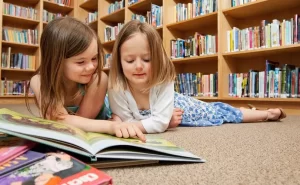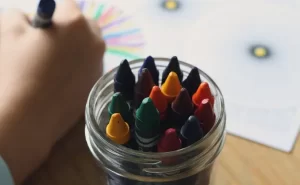Strategies to Help Children Develop Coping Abilities
Various factors, such as class presentations and small-group assignments, frequently cause tension in children. There are, fortunately, strategies that can help them cope with these circumstances. These include physical activity, humor, and the use of art supplies.
In addition, children can learn to manage tension and anxiety by regulating their emotions and remaining composed.
Humor is an excellent method to help your children deal with tension. It allows them to release tension and improves their self-esteem.
It also helps them appear to be managing and can aid in developing resilience. Multiple studies have shown that humor helps children manage tension. The following are some ways humor can help your children deal with anxiety.
Humor helps children manage tension
Children frequently recall instances in which they used humor to cope with tension. For example, they may have mentioned bidding farewell to a person they had a pleasant time with. In this situation, they may consider funny things to say to the individual when they see them again. This would assist them in coping with the tension of bidding goodbye.
Physical activity helps children regulate their emotions.
Physical activity has been shown to help children control their emotions. For example, when children feel overwrought, aerobic and strength-building exercises can help them calm down.
Likewise, when children think despondent or apprehensive, they can defuse the situation by inhaling deeply. Additional breathing exercises that help children relax include the bunny, tummy, and balloon exercises.
Moreover, physical activity promotes emotional regulation in children and can enhance self-confidence and resiliency.
Even though many low-income households lack the means to enroll their children in extracurricular activities, physical activity can improve their academic performance.
Make an effort to discover activities that your children appreciate, and schedule outdoor playtime. As role models, parents should purchase items that encourage physical activity.
Art supplies aid youngsters in processing their emotions
Numerous children utilize art materials to process their emotions and experiences. These experiences can be overpowering; however, art supplies can aid children in coping by providing vital sensory input.
Additionally, art endeavors encourage children to investigate their creativity and sense of presence in the world. As a result, they can process intense emotions without using words and express themselves more thoroughly. The sensory stimulation art supplies are essential for a child’s healthy development.
Art therapy can help children express their emotions and beliefs in a therapeutic setting. In addition, it helps children cope with trauma by visualizing its aftermath.
It can improve their communication with family members and other adults. It can also enhance their verbal abilities, eye contact, and concentration. Finally, it can help children acquire effective coping mechanisms for negative emotions.
Listening helps children manage their emotions
One of the most effective methods to assist children in processing their emotions is to listen to them. Children can simultaneously experience various emotions, including sorrow, excitement, anxiety, and remorse.
If you can attend to their mixed feelings, you will be able to help them make peace with themselves and stop resisting their emotions.
When children listen to their parents, they frequently feel validated, strengthening their relationship for life. However, it is essential to remember that children often fear rejection from others, which may cause them to react by not listening.
Using language to convey an emotion
One of the best methods to help your children deal with complex emotions is to educate them on expressing themselves through language. Children who can communicate effectively will recover from difficult situations more quickly.
Additionally, they will refrain from destructive behavior and improve their communication and social skills. When children can express their emotions, they are more likely to establish peers and develop stable relationships. They may even avoid arguments with their peers if they can articulate their thoughts.
When it comes to temper management, children require an outlet for their emotions. Fortunately, numerous physical activities can assist them in de-stress.
Running around the home, pounding play-dough, and striking a pillow are all excellent methods of releasing fury. In addition, it is a good idea to provide a variety of appropriate strategies to express various emotions on a poster.













